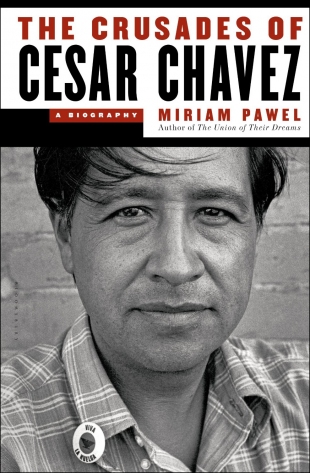"Chavez was an improbable idol in an era of telegenic leaders and charismatic speakers. The cadences of his speech were flat, his phrases often trite. In his luncheon speech, Chavez described growers as punch-drunk boxers and spoke of chickens coming home to roost. His power lay not in words, but in actions. He had willed the future to be different for farmworkers and swept up thousands in his quest.
"Chavez described his life's work as a crusade against injustice. He spoke of his anger as a child watching his parents humiliated in the fields, and his rage at the racist treatment of Mexican Americans. He traced his rise as a community organizer and his decision to walk away from a steady job to try to bring dignity to farmworkers.
"Three days before Chavez spoke, his longtime adversary Ronald Reagan had won reelection to the White House by a landslide, carrying all but one state. The Reagan era was not kind to labor leaders and liberal movements. Many of Chavez's supporters had grown disheartened. Others had abandoned la causa in anger and disillusionment.
"In the 1970s, the United Farm Workers had represented almost all who harvested grapes from California's vines and half of those who picked lettuce from its fields. As Chavez spoke in the Palace Hotel ballroom on November 9, 1984, the UFW had just one contract in the table grape vineyards and a handful in the vegetable fields.
"While the audience dined on pork tenderloin with cranberry-mustard sauce, Chavez described farmworkers who drank from irrigation pipes and lived under trees. Children born to farmworkers were 25 percent more likely to die at birth. Their parents' average life span was two-thirds that of the general population. Laws protecting union activity in the fields went unenforced.
"Chavez recited a litany of woes that testified to his union's failures. Then he waved away those facts, not as unimportant but as subordinate to a greater truth. He looked ahead to a twenty-first century when power would belong to people who looked like him."
